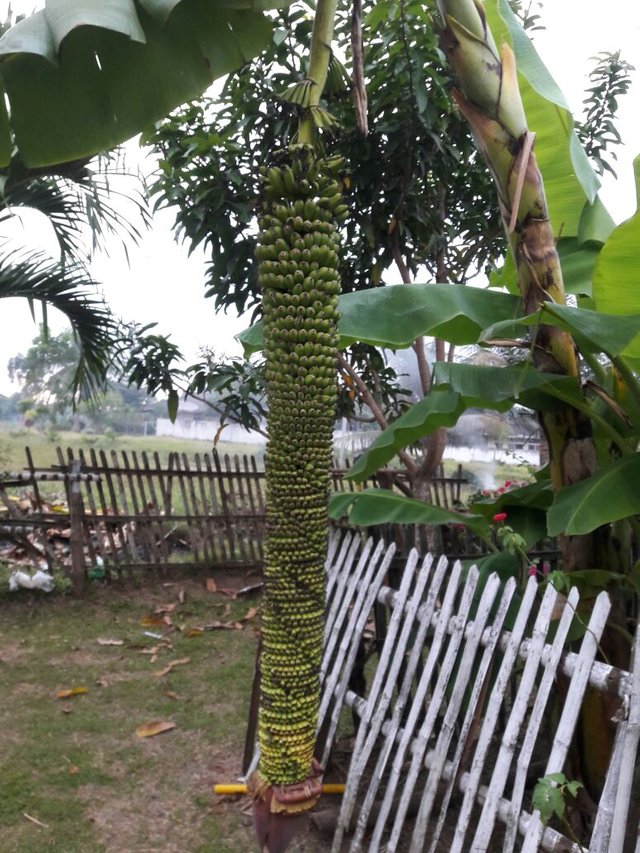Bananas are a common name given to large giant leafy terna plants extending from the Musaceae tribe. Some types (Musa acuminata, M. balbisiana, and M. x paradisiaca) produce a fruit of consumption called the same. The fruit is arranged in clusters with groups composed of fingers called combs. Almost all bananas have yellow skin when ripe, some with orange, red, green, purple, or even black. Banana fruit as a food ingredient is a source of energy (carbohydrates) and minerals, especially.
Keep in mind, the term "banana" is also used for types that do not produce fruit consumption, such as abaca bananas, ornamental bananas, and banana fan. This article deals only with fruit-producing bananas and their related relatives.
Mineral-rich bananas such as potassium, magnesium, phosphorus, calcium, and iron. When compared with other types of plant foods, banana minerals, especially iron, almost entirely (100 percent) can be absorbed by the body. Based on dry weight, banana iron content reaches 2 milligrams per 100 grams and zinc 0.8 mg. Compare with apples containing only 0.2 mg of iron and 0.1 mg of zinc for weight of 100 grams.
Vitamin content is very high, especially provitamin A, which is beta-carotene, amounting to 45 mg per 100 grams dry weight, while the apple is only 15 mg. Bananas also contain vitamin B, namely thiamine, riboflavin, niacin, and vitamin B6 (piridoxin).
The content of vitamin B6 banana is quite high, which is 0.5 mg per 100 grams. In addition to functioning as a coenzyme for several reactions in metabolism, vitamin B6 plays a role in synthetic and protein metabolism, especially serotonin. Serotonin is believed to play an active role as a neurotransmitter in the smooth functioning of the brain.

Vitamin B6 also plays a role in the metabolism of energy derived from carbohydrates. The role of vitamin B6 clearly supports the availability of energy for the brain for daily activities.
The energy value of bananas is about 136 calories for every 100 grams which overall comes from carbohydrates. The value of banana energy is twice as high as apples. Apples of the same weight (100 grams) contain only 54 calories.
Banana carbohydrates provide energy a little slower than sugar and syrup, but faster than rice, biscuits, and some kind of bread. Therefore, many athletes at intervals or breaks consume bananas as energy reserves.
so many of me that I can give hopefully can add
follow me at @riskiaulia14
pu ka peugah maaa keuh! @riskiaulia14
Downvoting a post can decrease pending rewards and make it less visible. Common reasons:
Submit